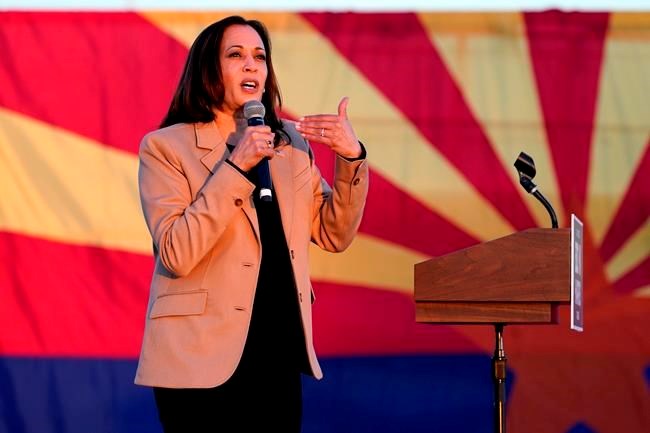CHICAGO — Long before Democratic presidential nominee Joe Biden announced her as his running mate, Kamala Harris was the target of widespread online misinformation.
Social media posts included racist claims that she was ineligible to serve in the White House or that she was lying about her Black and Indian heritage. Her mother is from India and her father from Jamaica.
Since being named to the presidential ticket, Harris has been at the
“The narratives related to Kamala Harris zeroed in much more on her personal identity, especially as a woman of
The firm identified more than 1 million mentions since June on Twitter of Harris with hashtags or terms associated with misinformation about her. The mentions include fact checks that rebuffed the falsehoods, but those made up only a small portion of that conversation.
Nearly 300,000 of those mentions were about Harris' eligibility to serve as president, according to Zignal’s findings. The AP identified that false claim circulating online in January 2019, when Harris announced she was running for president.
The untrue assertion got a huge boost again, however, in August when President Donald Trump elevated it from his presidential podium.
Harris’ birth certificate shows she was born on Oct. 20, 1964, in Oakland, California, making her eligible to serve as either
There's been a huge uptick in social media conversation around the
Misinformation accounted for less than 1% of Twitter talk when Pence and Kaine were running in 2016. The same goes for Pence this year, with most of the misleading claims around him
But misinformation around Harris has been more prevalent, making up more than 4% of the conversation on Twitter, Zignal Labs found.
That’s largely been driven by sexist or racist narratives that have swirled online around Harris, who is the first Black and Indian woman running for
Some of those social media posts push the idea that Harris, a California senator, used her romantic relationships to advance her career. That narrative gained popularity with hashtags like #HeelsUpHarris, which is used regularly by conservative influencers who have millions of followers. Zignal Labs found nearly 350,000 mentions on Twitter of hashtags or terms related to that narrative.
And Jankowicz has identified dozens of memes circulating on Facebook, Twitter and Instagram that superimpose photos of Harris onto images of sex workers or use sexist slurs to describe her. Her preliminary research shows that during the Oct. 7
“Time and time again when we see these narratives being used against women in public life, it’s meant to take women who are powerful and respected and knock them down a few pegs," Jankowicz said.
Amanda Seitz, The Associated Press



